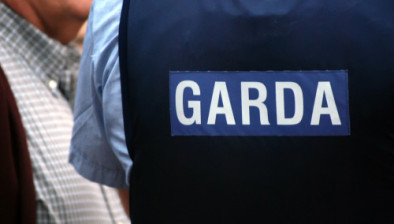High Court: Evidential presumption of validity applies to photocopy of breathalyser statement
In a matter which came before the High Court by way of consultative case stated, Mr Justice Garrett Simons found that the evidential presumption of validity under s. 20(1) of the Road Traffic Act 2010 applies to a photocopy of a breathalyser statement produced pursuant to s.13 of the Road Traffic Act 2010, and that the Director of Public Prosecutions was entitled to rely on the photocopied statement produced before the District Court.

About this case:
- Citation:[2019] IEHC 236
- Judgment:
- Court:High Court
- Judge:Mr Justice Garrett Simons
Background
Before the District Court in November 2018, Anthony McGrath pleaded not guilty to the offence of “driving a mechanically propelled vehicle in a public place while there was present in his body a quantity of alcohol such that the concentration of alcohol in his breath exceeded the prescribed concentration” contrary to section 4(4)(b) of the Road Traffic Act 2010.
Two breath specimens had been taken by a Garda Sergeant, analysed with a “breathalyser” or “intoxilyzer” which is capable of generating a written statement setting out, inter alia, the results of the breath specimens. Section 20 of the Road Traffic Act 2010 provides that certain evidential presumptions apply to a duly completed statement.
At the hearing, the DPP sought to prove the concentration of alcohol in Mr McGrath’s breath at the relevant time by relying on a photocopy of a statement produced pursuant to s.13 of the Road Traffic Act 2010 – the original statement having been mislaid. The photocopy of the s. 13 statement indicated that the level of alcohol in Mr McGrath’s system at the time of testing was 74 mcg alcohol per 100 ml breath. This was supplemented by way of oral evidence from the Garda Sergeant who had operated the apparatus used to analyse the breath specimens.
Consultative case stated
A question arose as to whether the evidential presumptions under s.20 applied to the photocopy, and the matter came before the High Court by way of a consultative case stated from the District Court, expressed in the following terms:
“In the circumstances of the present case, where the original s. 13 statement is not available but a photocopy of that statement has been tendered in evidence by the prosecution, does the evidential presumption of validity under s. 20(1) of the Road Traffic Act 2010 apply to that photocopied statement?”
At the outset, Mr Justice Simons said that in order to answer the case stated, it was necessary for this court to determine the legal effect of Section 30 of the Criminal Evidence Act 1992, which reads:
- Where information contained in a document is admissible in evidence in criminal proceedings, the information may be given in evidence, whether or not the document is still in existence, by producing a copy of the document, or of the material part of it, authenticated in such manner as the court may approve.
- It is immaterial for the purposes of subsection (1) how many removes there are between the copy and the original, or by what means (which may include facsimile transmission) the copy produced or any intermediate copy was made.
- In subsection (1) ‘document’ includes a film, sound recording or video-recording.
Arguments submitted on behalf of Mr McGrath
On behalf of Mr McGrath it was argued that there was an important distinction to be drawn between the admissibility of evidence and the operation of evidential presumptions.
It was submitted that although it is clear from s.30 that there is a general provision for the information contained in copies of documents to be admitted as evidence in criminal proceedings, there is however an important distinction to be drawn between the admissibility of evidence and the operation of evidential presumptions which might be contained in the legislation relating to the prosecution of specific offences.
Mr Justice Simons explained that Mr McGrath’s argument was that the evidential presumptions only apply when a s.13 statement which has been duly completed by a Garda is tendered in evidence, and the presumption cannot apply to a copy because a copy itself has not undergone the process necessary to be duly completed – i.e. not printed from the breathalyser and signed by a Garda.
Mr McGrath also sought to reply on the principle of “expressio unius est exclusio alterius” – in that he argued that since the Road Traffic Act 2010 made express provision elsewhere for evidential presumptions to apply in respect of a “copy” of certain documents, this indicated that the omission of any reference to a copy of a s.13 statement under s.20 should be regarded as deliberate.
High Court discussion
Mr Justice Simons said the provisions of s.30 of the Criminal Evidence Act 1992 were clear, providing that where information contained in a document is admissible in evidence in criminal proceedings, the information may be given in evidence by producing an authenticated copy of the document – and that this was precisely what occurred in the District Court.
Stating that Mr McGrath’s argument that the copy was not a “duly completed statement” was “misconceived”, Mr Justice Simons said that the legal effect of s.30 was that an authenticated copy of an original document was admissible in evidence as if it were the original.
Mr Justice Simons said his interpretation of s.30 was entirely consistent with the obiter dicta of Justice O’Neill in Fitzpatrick v Director of Public Prosecutions [2007] IEHC 383 and with the obiter dicta of Justice Hardiman in McFarlane v Director of Public Prosecutions [2007] 1 IR 34. Mr Justice Simons added that the judgment of O’Higgins in Director of Public Prosecutions v Kemmy [1980] IR 160, upon which Mr McGrath placed much emphasis, addressed a different point.
Considering the principle of “expressio unius est exclusio alterius”, Mr Justice Simons was satisfied that there was nothing in s.20 of the Road Traffic Act 2010 to indicate an intention to displace the clear words of s.30 of the Criminal Evidence Act 1992.
Answering the question stated in the affirmative, Mr Justice Simons was satisfied that, in the circumstances of the present case, the prosecution was entitled to rely on the photocopy of the statement, and that same gave rise to the evidential presumptions provided for under section 20 of the Road Traffic Act 2010.
- by Seosamh Gráinséir for Irish Legal News










